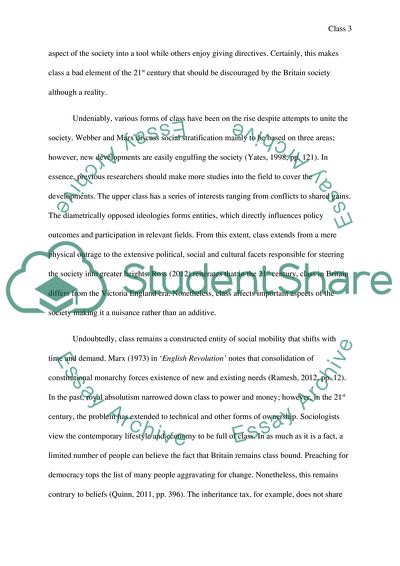Cite this document
(Is Class Still a Relevant Factor in 21st Century Britain Essay Example | Topics and Well Written Essays - 1250 words - 1, n.d.)
Is Class Still a Relevant Factor in 21st Century Britain Essay Example | Topics and Well Written Essays - 1250 words - 1. https://studentshare.org/sociology/1856248-is-class-still-a-relevant-factor-in-21st-century-britain
Is Class Still a Relevant Factor in 21st Century Britain Essay Example | Topics and Well Written Essays - 1250 words - 1. https://studentshare.org/sociology/1856248-is-class-still-a-relevant-factor-in-21st-century-britain
(Is Class Still a Relevant Factor in 21st Century Britain Essay Example | Topics and Well Written Essays - 1250 Words - 1)
Is Class Still a Relevant Factor in 21st Century Britain Essay Example | Topics and Well Written Essays - 1250 Words - 1. https://studentshare.org/sociology/1856248-is-class-still-a-relevant-factor-in-21st-century-britain.
Is Class Still a Relevant Factor in 21st Century Britain Essay Example | Topics and Well Written Essays - 1250 Words - 1. https://studentshare.org/sociology/1856248-is-class-still-a-relevant-factor-in-21st-century-britain.
“Is Class Still a Relevant Factor in 21st Century Britain Essay Example | Topics and Well Written Essays - 1250 Words - 1”. https://studentshare.org/sociology/1856248-is-class-still-a-relevant-factor-in-21st-century-britain.


